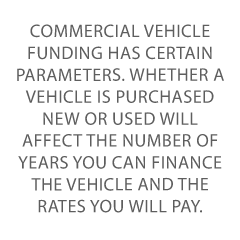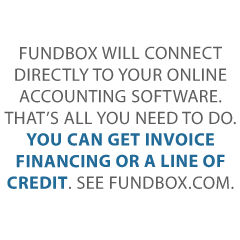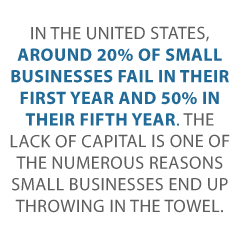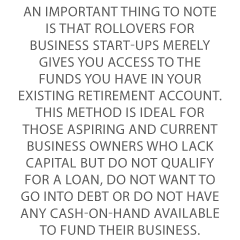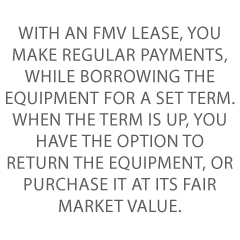What are the Best Business Financing Options for Your Business?
When it comes to business lending, what are your best choices? What are the best business financing options? And what are the details?
Your best business financing options will depend on your business’s strengths. This is in three areas:
- Cash flow
- Collateral
- Credit (personal or business)
In general, business financing options divide rather neatly into those three categories. Four, if you separate personal and business credit, which we’ll do here.
Business Financing Options with Good Cash Flow
Here’s a great selection of business financing options.
Fundbox
Fundbox will connect directly to your online accounting software. That’s all you need to do. You can get invoice financing or a line of credit. See fundbox.com.
Fundbox: Terms and Qualifying
Get a revolving line of credit for up to $150,000. Fundbox will auto debit your weekly payment from your bank account. You don’t need to show a minimum personal credit score, and you don’t need to show a minimum time in business.
Account Receivables Financing
You can use outstanding account receivables as collateral for financing. Receivables should be with the government or another business. If you also have purchase orders, you can get financing to have those filled. You won’t need to use your cash flow to do so. Get an accounts receivable credit line with rates of less than 1% with no consumer credit requirement. Receivables should be with the government or another business.
Account Receivables Financing: Terms and Qualifying
Use your outstanding account receivables for financing. Get as much as 80% of receivables advanced ongoing in less than 24 hours. Remainder of the accounts receivable are released once the invoice is paid in full. Factor rates as low as 1.33%. you can get an accounts receivable credit line with rates of less than 1% with no consumer credit requirement.
Purchase Order Financing
This is advanced to a business with a large purchase order or contract but cannot fulfill it. Lender then loans the funds necessary to complete the order and charges a percentage for the service. Then the company can fulfill its order or contract. The difference between purchase order and accounts receivable financing is:
- Purchase order financing involves a company lending you money to fulfill purchase orders
- Accounts receivable financing involves a company buying your outstanding invoices
Purchase Order Financing: Terms and Qualifying
Terms are for Credit Suite purchase order financing. For approval, lenders will typically review your outstanding purchase orders that need to be filled. If the purchase orders are valid and the suppliers you are dealing with are credible, you can be approved regardless of personal credit history. Rates typically range from 1-4%. In some instances, you can get 95% of your purchase order financed.
Cash Flow Financing
A loan made to a company is backed by a company’s expected cash flows. A company’s cash flow is the amount of cash that flows in and out of a business, in a specific period. Cash flow financing (or a cash flow loan) uses generated cash flow as a means to pay back the loan.
Cash Flow Financing: Terms and Qualifying
Often you will need to have a few years in business. You may need to meet a certain minimum credit score requirement. You will need to prove historical cash flow, and present your accounts receivables and accounts payables, so the lender can determine how much to loan to your business.
Merchant Lines of Credit
Merchant lines of credit are lines of credit offered by stores. These lines of credit can only be used exclusively at the store from which they are offered. One such example is Amazon, which offers lines of credit through Marcus by Goldman Sachs.
Merchant Lines of Credit: Terms and Qualifying
Terms vary. Eligibility can be based on cash flow (Amazon’s is). Such lines of credit may offer special financing terms during certain time periods, for certain products, or for a certain dollar amount spent at the store. In some cases, payment in full must be made after a specified period of time, like a promotional period.
Contrast with traditional credit cards and merchant credit cards which allow borrowers to continue carrying a revolving balance with interest. In exchange for a shorter repayment period, the borrower may be offered low or zero percent interest, or a discount off their purchase price.
Merchant Cash Advances
Businesses that accept credit cards as a form of payment may qualify for a merchant cash advance. This means your business must have a merchant account in order to be able to accept credit card payments. Your business must bring in $100,000 or more per year in credit card sales. Typical approval is equal to one month’s credit processing volume. The minimum credit score is 500.
Qualifying for a Merchant Cash Advance
They do not ask for a lot of documents. This is not like what most conventional lenders will want. You won’t need financials, business plans, or resumes. You don’t even need collateral.
Your business’s credit card receipts and business bank statements tell lenders all they need to know. These loans work well for businesses that qualify and need funds fast, and those with credit that is less than perfect. It’s a great way to get money for your business fast with few requirements.
Business Revenue Financing
It’s also called royalty-based financing. Business revenue financing is a way to raise capital from investors who get a percentage of the enterprise’s ongoing gross revenues, in exchange for money invested. In a revenue-based financing investment, investors get a regular share of business income until a predetermined amount is paid. Often, this predetermined amount is a multiple of the principal investment. It is usually between 3 – 5 times the original amount invested.
Business Revenue Financing: Terms and Qualifying
Since repayment of the loan is based on revenues, the time it takes to repay the loan will fluctuate. The faster revenue grows, the quicker you’ll repay the loan, and vice versa. The percentage of monthly revenues committed to repayment can be as high as 10%. Monthly payments will fluctuate with revenue highs and lows and will continue until you’ve paid back the loan in full.
Business Financing Options with Collateral
Collateral opens up a ton of financing choices; this is just a handful of what’s out there.
401(k) Financing
If you have an eligible 401(k), you can use those funds to get money for your business. You must not be currently contributing. You must not longer be working for the company that the 401(k) is under. And you must have a balance of at least $35,000.
You can even still earn interest on your account, and there are no tax penalties. Personal credit doesn’t really matter much. Interest rates are usually low.
401(k) Financing Details
In fact, they are often less than 5%. Close and fund in less than 3 weeks. Can usually get up to 100% of what’s “rollable” within your 401(k). This type of loan works well for anyone that has an eligible 401(k) account.
IRA Financing
Similar to 401(k) financing. In as little as 3 weeks you can invest a portion of your retirement funds into your business. This gives you more control over the performance of your retirement plan assets. And it gives you the working capital you need for business growth.
IRA Financing: Terms and Qualifying
In general, you will work with a CPA. They will help you roll over a non-contributing and qualifying account. This allows for cash out of half, or $50,000, whichever is lower. If applicable, the CPA you work with will structure a self-directing IRA for the remaining funds.
Stocks Financing
Some lenders will make loans using securities as collateral. Securities-based lending provides ready access to capital. This can be used for almost any purpose, such as buying real estate or investing in a business. The only restrictions to this kind of lending are other securities-based transactions like buying shares or repaying a margin loan.
Stocks Financing: Terms and Qualifying
You continue to earn interest on stocks pledged as collateral. Closing and funding takes less than 3 weeks. Rates can be as low as 1.6%. You will have challenged personal credit.
Bonds Financing
Securities-based lending for bonds is offered through large financial institutions and private banks. People tend to seek out these kinds of loans, if they want to make a large business acquisition, or if they want to execute large transactions like real estate purchases.
Lenders determine the value of the loan based on the borrower’s investment portfolio. In some cases, the issuer of the loan may determine eligibility based on the underlying asset. It can end up approving a loan based on a portfolio of US Treasury notes rather than stocks.
Bonds Financing: Terms and Qualifying
Most investment-grade corporate, treasury, municipal, and government agency bonds are accepted. You keep all the interest and appreciation from your securities. To qualify all the lender will require is a copy of your two most recent securities statements. If your stocks or bonds have a value over $25,000, you can be approved, even with severely challenged personal credit.
Demolish your funding problems with 27 killer ways to get cash for your business.
Kickfurther
Finance your next inventory purchase with financing from customers and brand supporters and fundraise directly to them. Customers buy through what’s called a Consignment Opportunity. Your customers own the products they helped fund until they are sold by the brand. As soon as the products sell, the customer earns payments. Kickfurther also offers an online store for businesses to market and sell their products. See kickfurther.com.
Kickfurther: Terms and Qualifying
Get funding for up to $2 million in inventory. Payback terms will vary. At the end of each sales period, submit sales reports and provide payment for inventory sold. You are required to provide a monthly accounting of current inventory levels.
Inventory Financing
Inventory financing is a revolving line of credit or a short-term loan acquired by a company so it can purchase products for sale later. The products serve as the collateral for the loan. There may be restrictions on the type of inventory you can use. This can include not allowing cannabis, alcohol, firearms, etc., or perishable goods. There can be revenue requirements. And there may also be minimum FICO score requirements.
Inventory Financing: Terms and Qualifying
Get approved for a line of credit for 50% of inventory value, regardless of personal credit quality. Rates are usually 5 – 15% depending on type of inventory. Get funding within 3 weeks or less. It can’t be lumped together inventory, like office equipment.
Equipment Financing
Equipment financing is when you use a loan or lease to purchase or borrow hard assets for your business. It is a business financing option you can use to buy any physical asset. Physical assets can include items such as a restaurant oven or a company car. You will predictable amounts every month. You can build business credit on a program such as this.
Equipment Financing: Terms and Qualifying
All terms are for equipment financing through Credit Suite. Companies must have at least one year in business. You can get approved even with challenged credit. You won’t need financials to secure equipment financing. Approvals take as little as 24 hours.
Equipment Leasing
You can also lease equipment, rather than buy it outright. And you will often put down less money than you would if you were buying the piece of equipment. You may be able to negotiate flexible terms with an equipment lease. It’s easy to upgrade equipment after your lease ends. This is helpful if your equipment is something like a computer which quickly becomes obsolete.
Equipment Leasing: Terms and Qualifying
All terms are for equipment leasing through Credit Suite. You can be approved for equipment financing and leasing with as low as a 640 personal credit score. To get approved lenders will request details on the equipment you are getting. After a quick credit review, you can be approved for as much as $10,000,000 in equipment financing.
Business Financing Options with Good Personal Credit
Credit Line Hybrid
A credit line hybrid is a form of unsecured funding. Our credit line hybrid has an even better interest rate than a secured loan. Get some of the highest loan amounts and credit lines for businesses. Get 0% business credit cards with stated income. These report to business CRAs. You can build business credit at the same time. This will get you access to even more cash with no personal guarantee.
Credit Line Hybrid: Terms and Qualifying
You need a good credit score or a guarantor with good credit to get an approval (a FICO score of at least 680). No financials required. You can often get a loan of five times the amount of current highest revolving credit limit account. This is up to $150,000.
Bridge Loans
A bridge loan is a short-term loan used until a person or company secures permanent financing or removes an existing obligation. It allows the user to meet current obligations by providing immediate cash flow. Bridge loans are short term, up to one year. They have relatively high interest rates. And they are often backed by some form of collateral, like real estate or inventory.
Bridge Loans via Our Credit Line Hybrid
The Credit Suite Credit Line Hybrid has a term loan program. This bridge loan works as either an add-on to, or in lieu of, the program, when the applicant meets eligibility and is agreeable to either a portion (or all) of their funding, supplied in the form of cash term loans. There is a fixed monthly repayment.
Bridge Loans: Terms and Qualifying
The Credit Suite program is an aggregate program requiring multiple accounts to meet our prequalification. Get $25,000 to $300,000 per applicant. The APR is 7 – 24% depending on creditworthiness and selected term. Terms are 3, 5, or 7 years. You must have a 680 FICO or better, and over $35,000 in adjusted gross income. Actual pre-qualification will depend on Debt-to-Income ratio.
Computer Leases
Just like furniture, you can lease computer equipment. You can take advantage of tax incentives and use your cash flow to its fullest advantage. This includes:
- File Servers and Backup Storage
- Hardware and Mainframes
- Laptops
- Printers and Scanners
Computer Leases: Terms and Qualifying
Terms can include leasing to ownership. Often, leasing provides businesses with a full deduction of lease payments against current earnings. A large part of approval is based on the personal credit and background of the owners, not on trade or banking information that startups in particular don’t have yet. Lease up to $5,000 to $250,000 and more in computer equipment value. Lease terms range from 24 months to 60 months. See harrisleasing.com/computer-equipment-leasing.
Auto Financing
Whether a vehicle is purchased new or used will affect the number of years you can finance the vehicle and the rates you will pay. If a vehicle is used, then the number of miles on it will also affect terms. Plus, business owners may be required to personally guarantee vehicle loans. If you are a co-borrower the loan will most likely report to your personal credit report. Some loans have a prepayment penalty and charge you for paying ahead.
In general, the following will eliminate the need to provide a personal guarantee for this type of financing:
- good business credit
- a decent amount of time in business or
- good personal credit
Much like with any other kind of business borrowing, the more assurances you can give the lender, the better.
Auto Financing: Terms and Qualifying
You need to establish:
- the amount of money you have for a down payment
- the vehicle you need, and
- the costs associated with buying the vehicle
Provide documentation that proves you are the owner of a business, like:
- business licenses
- partnership agreements, and
- LLC documents
- articles of incorporation (if applicable), listing you as having at least a 20% stake in the business
You may also have to provide personal documentation like personal credit score and credit history. If you are a sole proprietor and the business is under your Social Security number, you are the borrower and guarantor. Hence you are personally liable for repaying the loan. It is also a good idea to have a loan proposal. A loan proposal should detail your business, loan needs, and financial statements.
Demolish your funding problems with 27 killer ways to get cash for your business.
Business Financing Options with Good Business Credit
Building business credit will open up even more opportunities for funding. Check out the details.
Vendor Credit
Starter vendors are open to working with most businesses, even startup ventures. Make sure vendors report to the CRAs – not all do. Vendors report to the business CRAs within 60 days. They help you build your business credit profile and score.
Vendor Credit: Terms and Qualifying
Terms will vary depending on the vendor, but they tend to be Net 30. And you will not need collateral, good personal credit, or cash flow.
Retail Credit
Retail credit comes from major retailers. Buy everything from office supplies to power tools. Retailers will check whether your business information is uniform everywhere. They will also check whether your business is properly licensed.
Retail Credit: Terms and Qualifying
Qualifications will vary, and there can be a minimum time in business requirement. There may even be a minimum number of employees requirement, or a minimum annual sales requirement. Terms can be revolving. You will need at least 3 (5 is better) accounts reporting to the business CRAs.
Fleet Credit
Fleet credit is used to buy fuel, maintain vehicles of all sorts, and repair vehicles. Even businesses which don’t have big fleets can still benefit. These are usually gas credit cards.
Fleet Credit: Terms and Qualifying
Requirements will vary. There may be a minimal time in business requirement. If your business doesn’t make the time in business requirement, you may be able to, instead offer a personal guarantee or give a deposit to secure the credit.
Bank Credit Cards
Bank credit cards are cards like MasterCard. So they can be used pretty much anywhere. These cards may even have rewards programs.
Bank Credit Cards: Terms and Qualifying
Terms can be revolving. Usually, you will need to have at least 14 accounts reporting to the business CRAs. There can be longer time in business requirements. And there may also be minimum number of employee requirements.
Business Financing Options for a Combination of Collateral, Cash Flow, Good Personal Credit, and Good Business Credit
The Small Business Administration wants to see the full package.
SBA Loans
Guaranteed by the federal government. Issued by participating lenders, usually banks. They offer a lot of the perks of traditional loans, such as lower interest rates and favorable terms. Due to government guarantee, lenders are able to offer them to those with a lower credit score than would typically be required.
Eligibility for SBA Loans
Lenders and loan programs have unique eligibility requirements. In general, eligibility is based on what a business does to receive its income, the character of its ownership, and where the business operates. Hence even those with bad credit may qualify for startup funding.
Normally, businesses must meet size standards, be able to repay, and have a sound business purpose. The lender will provide you with a full list of eligibility requirements for your loan. See www.sba.gov/document/support–table-size-standards.
Ideal credit scores for an SBA loan are 680 or above. There are a number of SBA loan programs, each one designed to work for different needs and situations. Find out more at SBA.gov.
Demolish your funding problems with 27 killer ways to get cash for your business.
Term Loans
Banks are often the first place we think of when we thinking of financing. But big banks only sign off on about 25% of the small business loan applications that come their way. Term loans often have lower interest rates than many other funding options. They also tend to be for higher loan amounts.
For term loans, you generally need all four strengths.
Term Loans: Terms and Qualifying
Generally speaking, the companies banks end up funding have very strong financials and near-perfect credit scores. You will most likely have to undergo a personal credit check. These kinds of loans may require collateral.
Business Financing Options if You Sell Part of Your Business
Angel Investing
Angel investors invest in small startups or entrepreneurs. Often, angel investors are among an entrepreneur’s family and friends. The capital they provide may be a one-time investment to help the business get started, or an ongoing injection of money to support and carry the company through its early stages.
Angels are not covered by the Securities Exchange Commission’s (SEC) standards for accredited investors. Angels could be friends or colleagues sitting on home equity, or local professionals who are looking to invest. Consider people you know well and people you don’t know so well. But keep in mind, you’re giving up part of your ownership in your business.
Angel Investing: Terms and Qualifying
Angels are informal investors so there really aren’t any terms. Technically, there is nothing done for qualifying, although investors may (probably should) insist on a valuation of your business. No matter what, it’s always a good practice to get everything in writing.
Venture Capital
Venture capitalists give money to help build new startups, if the VCs believe a company has both high-growth and high-risk potential. These tend to be fast-growth companies with an exit strategy already in place. Venture capitalists often look to recover their investment within a 3-5 year time frame.
VCs will also, often, want to own a large piece of a company if not a controlling stake. They want game-changing businesses, so straightforward businesses won’t be on their radar unless it’s shifting the paradigm. Like with angel investors, you are giving up a part of your ownership in your business. VCs often want a larger share of your business than angel investors do.
Venture Capital: Terms and Qualifying
Because venture capitalists are more formal investors than angels, a valuation of your business is probably going to necessary. Specific terms will be spelled out in your agreement with them. The Securities and Exchange Commission will also have requirements. It is best practices to consult with a lawyer well-versed in business law before you sign anything.
Business Financing Options if You Have None of the Above
Reward-Based Crowdfunding
You can get money from the crowd for your business. Start with a service like Kickstarter. But make sure you read the fine print (always a good idea!). Many crowdfunding platforms make you give all the funding back if you do not make your goal by the end of the campaign. But Indiegogo has a flexible funding option.
Crowdfunding platforms will take a percentage of the donations. That’s how they make their money. Crowdfunding platforms may push to have you deliver on your promises. So you’ll have to actually manufacture a product or do whatever else your business is supposed to be doing. Given how much social media we’re all bombarded with these days, it should come as no surprise that donors can become weary of crowdfunding pitches.
Reward-Based Crowdfunding Details
Crowdfunding tends to work best when donors can personally connect with a product or service. Straightforward businesses may not do so well. The kinds of businesses which do the best often associate with products not quite on the shelves yet, or artistic endeavors.
Standard widgets will most likely not attract brand ambassadors. They probably won’t get donors too fired up. Because crowdfunding campaigns are time-consuming, it doesn’t make sense to try this form of funding unless you realistically feel your chance of success is better than 50%.
Reward-Based Crowdfunding: Terms and Qualifying
Terms will differ depending on which platform you use. Check and make sure your platform of choice will allow your industry to work with them. For example, even though recreational cannabis use is legal in Massachusetts, Kickstarter (for example) doesn’t allow fundraising for drugs, nicotine, tobacco, vaporizers, and related paraphernalia. Any major crowdfunding platform has a section for rules, a FAQ, or ‘how it works’. Be sure to read such a section thoroughly so you know exactly what you’re getting yourself into.
Equity Crowdfunding
The first thing to know is that equity crowdfunding is a stock offering from a company that does not have a stock exchange listing. Equity crowdfunding has been around for less than 10 years. It’s not the same as rewards-based (which comes from places like Kickstarter). Potential investors visit a funding portal website. There, they can explore different equity crowdfunding investment opportunities. Note: there are limits on how much capital an individual can invest based on their income and net worth. Equity crowdfunding gives investors a stake in your business.
Equity Crowdfunding: Terms and Qualifying
Keep in mind that equity crowdfunding tends to be covered by the Securities Act of 1933, Regulation Crowdfunding (17 CFR Part 227), Regulation D Rule 506 (17 CFR § 230.506), and Regulation A+ (17 CFR § 227.100). See: law.cornell.edu/cfr/text/17/227.100.
Federal law can be complex. It is best practices to consult with an attorney well-versed in federal law, specifically, securities and corporations, when it comes to interpreting terms and qualifications (and any changes that may be made to these aspects of the law in the future).
Grants
Federal, local, city, and state grants generally do not have to be paid back. For urban projects, try HUD (Housing and Urban Development). For rural projects, try the USDA (Department of Agriculture). Federal funding means paperwork. You often must show experience in what you are proposing. See grants.gov. and grantwatch.com.
Also try city and state websites. These are often less restrictive than federal grants. It helps if you can show you will help the community. Try to partner with a local business.
Grants: Terms and Qualifying
Grants have varying qualifications. They are very competitive. Be sure to check information thoroughly. This includes due dates and any necessary paperwork. Some grants may offer preferences to businesses with minority, female, veteran, or disabled ownership.
Microloans
Microloans are business loans with relatively low interest rates. Generally, these loans are on offer to small or developing businesses with modest capital requirements and little to no revenue history. Microloans — as the name suggests — are smaller loans than a traditional bank loan. They generally offer anywhere from $500 to $50,000 in business financing.
Microloans: Terms and Qualifying
Terms and requirements vary among providers. Kiva, for example, charges 0% interest. The Opportunity Fund provides loans to low- and moderate-income immigrants, women, and other underserved small business owners. Accion requires a cosigner. Check the specific requirements of any microloan program that interests you.
So How Do You Choose?
This is an enormous buffet of business funding choices! But how do you select the one(s) that’s best for your particular situation? This is where our Advisory Team comes in extremely handy. Or help yourself with our Business Credit Builder. It’s your choice. But it all starts with business credit.
The post What are the Details on Business Financing Options? appeared first on Credit Suite.
